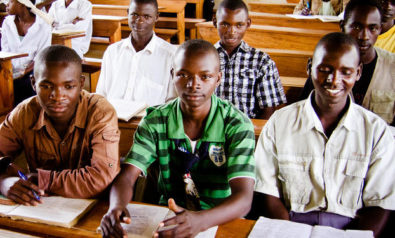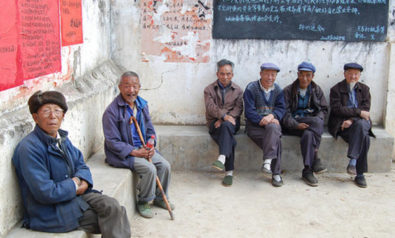Background
Ever since the Industrial Revolution, steady advances in medical technology, changing patterns in education and gender roles, and a wide range of other factors have caused populations around the world to reach old-age in growing numbers. For some time the problem of ageing populations seemed to be an affliction particular to developed nations, but United Nations (UN) data suggest that it is now a “global phenomena”, affecting developed and developing countries alike. Although in terms of technology and infrastructure, developing nations may be several decades behind developed nations, the problem still remains; populations are changing, causing nations with well developed and under developed social safety nets to reevaluate their resilience to changing demographics.
According to the UN, the global population aged 65 and over is set to double by 2050, while globally, people are deciding to have fewer children. In the 1970s, women on average gave birth to 4.3 children each while current numbers have dropped to 2.6 or even 1.6 in wealthy countries. Statistics like these have started to turn the global population pyramid upside down, presenting unprecedented policy dilemmas for governments and populations worldwide. How will economies continue to support already overburdened pension systems with even smaller workforces? How will countries with less developed social safety nets support even larger elderly populations?
Why are ageing populations relevant?
Everyone will inevitably age, but with the advances in technology and science, individuals today live longer than before, placing unexpected strain on national pension systems. The majority of pension systems worldwide were not designed to accommodate the current baby boomer generation entering retirement, much less future retirees with even higher life expectancies. This begs the question: if individuals are living longer and in greater numbers should they also be required to work longer before retirement? Although raising the retirement age may seem like a quick fix, the simplicity disappears when events like the 2010 French riots protesting a two-year extension to the retirement age are taken into account.
The effects of ageing populations are as diverse as countries themselves. The Nordic countries, France, and Britain, although located in Europe, currently have more youthful populations, while countries like Germany and Italy are continuing to see fewer children per family. Even in traditionally poorer regions such as Asia, wealthier countries such as Japan and Taiwan are already struggling with ageing populations, yet they have still managed to remain competitive in the global market. The United States has managed to postpone dealing with an ageing population through high immigration rates and a steady birth rate. With such varied circumstances across the globe, a “one size fits all” solution will not be possible. This opens the door to debate on how to sustainably provide not only for the elderly, but for future generations as well.
Image: Copyright © Shutterstock. All Rights Reserved
For more than 10 years, Fair Observer has been free, fair and independent. No billionaire owns us, no advertisers control us. We are a reader-supported nonprofit. Unlike many other publications, we keep our content free for readers regardless of where they live or whether they can afford to pay. We have no paywalls and no ads.
In the post-truth era of fake news, echo chambers and filter bubbles, we publish a plurality of perspectives from around the world. Anyone can publish with us, but everyone goes through a rigorous editorial process. So, you get fact-checked, well-reasoned content instead of noise.
We publish 2,500+ voices from 90+ countries. We also conduct education and training programs on subjects ranging from digital media and journalism to writing and critical thinking. This doesn’t come cheap. Servers, editors, trainers and web developers cost money.
Please consider supporting us on a regular basis as a recurring donor or a sustaining member.
Support Fair Observer
We rely on your support for our independence, diversity and quality.
Will you support FO’s journalism?
We rely on your support for our independence, diversity and quality.







